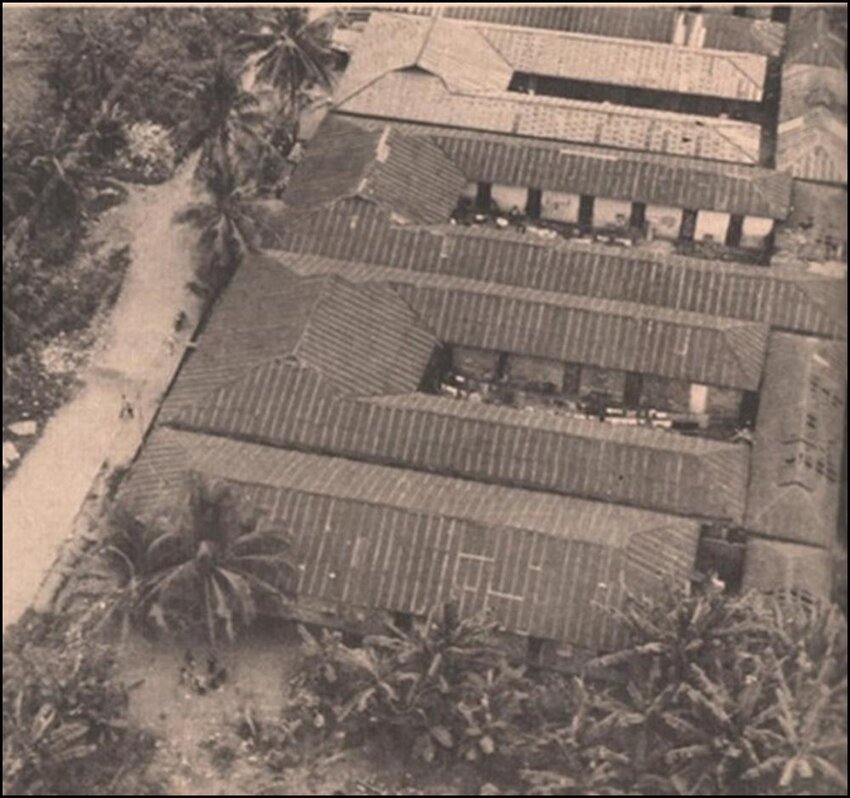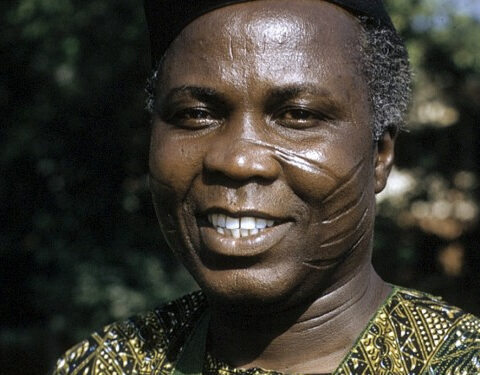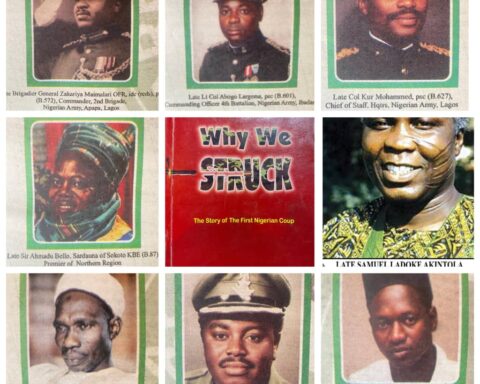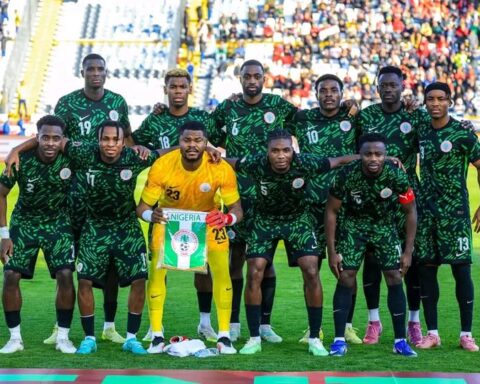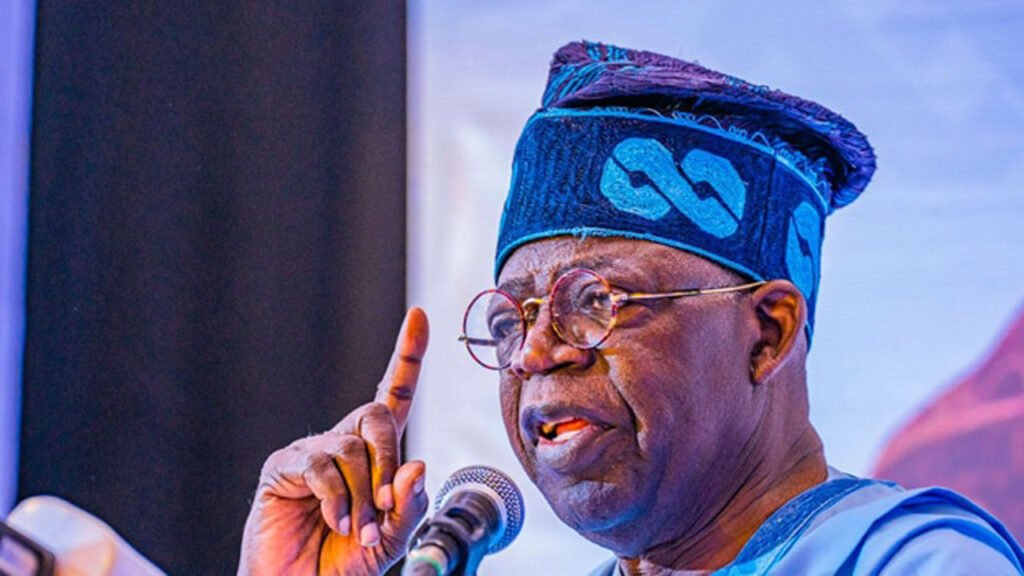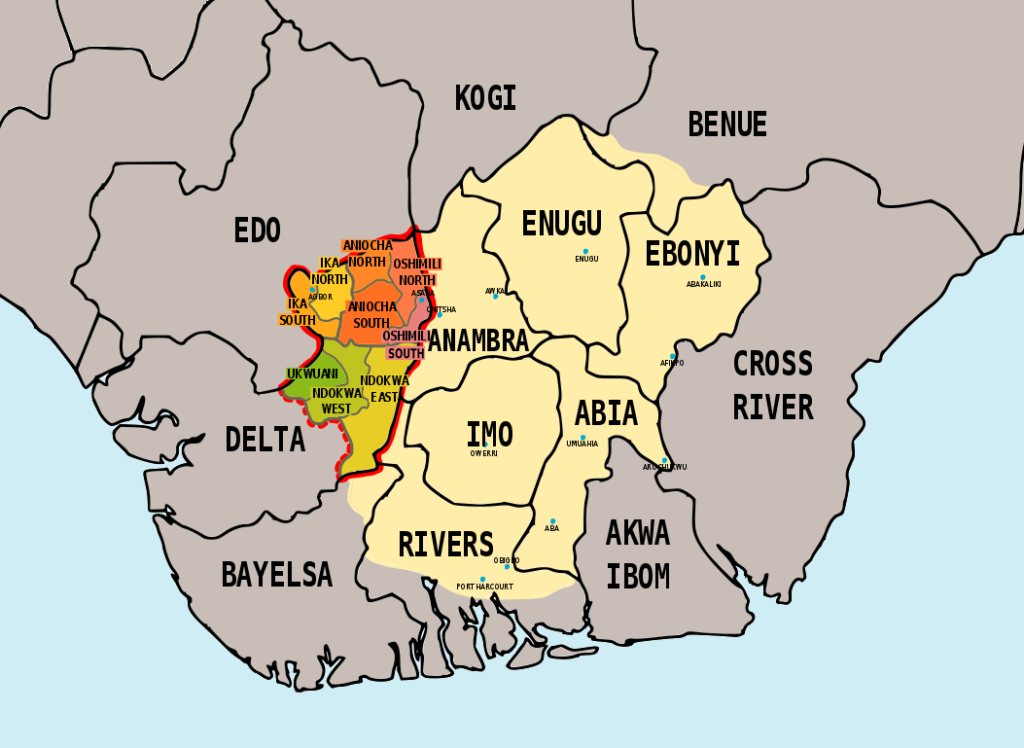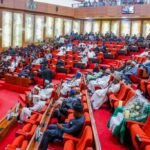By Khaleed Yazeedu
Port Harcourt, Late 1975.
The Nigerian Civil War had ended five years earlier. The guns were silent. The Biafran flag was lowered. But for the Igbo people, the battle was far from over. The new war was no longer fought on the blood-soaked fields of Enugu or Nsukka. It was a quiet war, fought in offices, courtrooms, and government houses.
In a nondescript room inside the Rivers State Government House, a secret meeting convened behind closed doors. The ceiling fan hummed relentlessly as a group of men gathered around a heavy wooden table strewn with maps, legal documents, and property claims. They were about to forge a legal instrument that would devastate the Igbo people for generations.
At the head of the table sat Navy Commander Alfred Diete-Spiff, then the young and ambitious Military Governor of Rivers State. With him were key figures who would shape one of Nigeria’s most painful post-war legacies:
Justice Ephraim Akpata, Chief Judge of Rivers State
Colonel Anthony Ukpo, liaison officer from the Supreme Military Council
Dr. Okoi Arikpo, federal advisor and Foreign Minister
A Yoruba constitutional lawyer from Lagos (name withheld for privacy) tasked with drafting the legal framework
Senior civil commissioners and property officials from Rivers and Cross River States
The Agenda That Shattered Lives
Their mission was clear but devastating:
1. Declare Igbo properties abandoned and seize them as state assets.
2. Create legal cover to prevent restitution claims.
3. Redistribute these properties to indigenous residents, military officers, and political cronies.
4. Avoid federal interference and silence Eastern political voices.
The Conversation Behind Closed Doors
In the low lit room, voices spoke with calculated certainty.
Diete-Spiff opened the discussion:
“The war may have ended, but we must protect our people from the return of those who fled. These properties are abandoned. The Easterners cannot simply come back and reclaim what is ours.”
Justice Akpata responded:
“Then we must codify what ‘abandoned’ means. If someone leaves during war and does not return within a specified time, the property legally belongs to the state.”
The Yoruba lawyer from Lagos added:
“This can be defended in court if issued as a military edict rather than through legislative processes. We establish a custodian board to manage and reallocate these properties.”
Colonel Ukpo raised a concern:
“What about the federal government? Will they accept this?”
Dr. Arikpo, calm and assured, replied:
“The North will not object. Lagos may have reservations, but as long as there is no Eastern uproar, it will be allowed to pass.”
Diete-Spiff concluded:
“Prepare the draft edict. No public announcements. Implementation only.”
Edict No. 5 of 1976: The Abandoned Property Act
Within weeks, the Edict was signed quietly in Port Harcourt. It created the Abandoned Property Custodian Board, authorized to seize and redistribute properties left behind by fleeing Igbos. The legal definition of abandoned was vague, allowing the board sweeping powers to declare properties vacant if unclaimed within an unspecified period.
In practice, this meant entire neighborhoods in Port Harcourt, from Diobu to D-Line, Oroworukwo to Old GRA, were reallocated to civil servants, military officers, and political favorites. Igbo families who survived the war returned home only to find their houses occupied or sealed off.
Federal Government’s Silent Consent
Though officially a state law, the federal government did not intervene. Why?
The federal Finance Ministry, influenced by Western Nigerian political interests, had already frozen Igbo bank accounts.
The Gowon administration preferred quiet reintegration over reopening war wounds through legal battles.
Yoruba elites, still recovering from political marginalization, tacitly supported policies that curtailed Igbo economic power.
Survivor Testimonies
Chief Nnamdi Okeke, a retired businessman from Port Harcourt, recalls:
“I returned after the war expecting to rebuild. Instead, my family’s three-story home was occupied by a civil servant. We were told the property was abandoned and given away. We fought for years in court but lost every time.”
Mrs. Ifeoma Chukwu, a widow from Enugu, shares:
“My late husband’s shop in Balogun Market was reassigned while I was fleeing the war. I had no legal documents to prove ownership, they said I abandoned it. It was heartbreaking to see strangers in our place.”
Mr. Emeka Nwosu, an Igbo civil servant, recounts:
“In Lagos, I was denied my housing allocation because my name was removed from lists. I was told the government had ‘reallocated’ the property for security reasons. We lived as second class citizens in our own country.”
The Legacy of a Legal Coup
This was not merely a property dispute. It was economic marginalization inflicted through the law.
How does a people rebuild after losing everything, land, homes, businesses, dignity? The Abandoned Property Act systematically erased Igbo presence from key Nigerian cities and economic centers. It decimated an entire community’s wealth and laid the groundwork for ongoing marginalization.
The Cost of One Nigeria:
Post war slogans promised “No victor, no vanquished.” But this legal dispossession said otherwise. It demanded forgiveness without justice. It punished a people for seeking to survive.
Today, descendants of those dispossessed still struggle for compensation, recognition, and healing.
A Call for Truth and Justice
This article is a call for historical honesty, national dialogue, and reconciliation based on facts, not rhetoric. A true unity demands acknowledging past wrongs, restoring dignity, and offering reparations where possible.
“They took their homes and called it unity. But unity without justice is a lie.”
You can factscheck me through these References:
Nigerian Federal Government Gazette, Edict No. 5 of 1976
Achebe, Chinua. There Was a Country: A Personal History of Biafra (2012)
Coleman, James S. Nigeria: Background to Nationalism
Falola, Toyin and Genova, Ann. Historical Dictionary of Nigeria (2009)
Interviews and oral histories collected from survivors in Port Harcourt and Lagos (2018-2024)
Legal Disclaimer
This article aims to present historical facts and survivor testimonies based on verified sources to promote truth and reconciliation. It does not intend to defame individuals or groups. Readers are encouraged to approach this topic with an open mind and seek further scholarly sources for comprehensive understanding.
Khaleed Yazeedu
Student of History and Justice Advocate
Follow us on all social media platforms @dailyquery for news and analyses around the globe.
